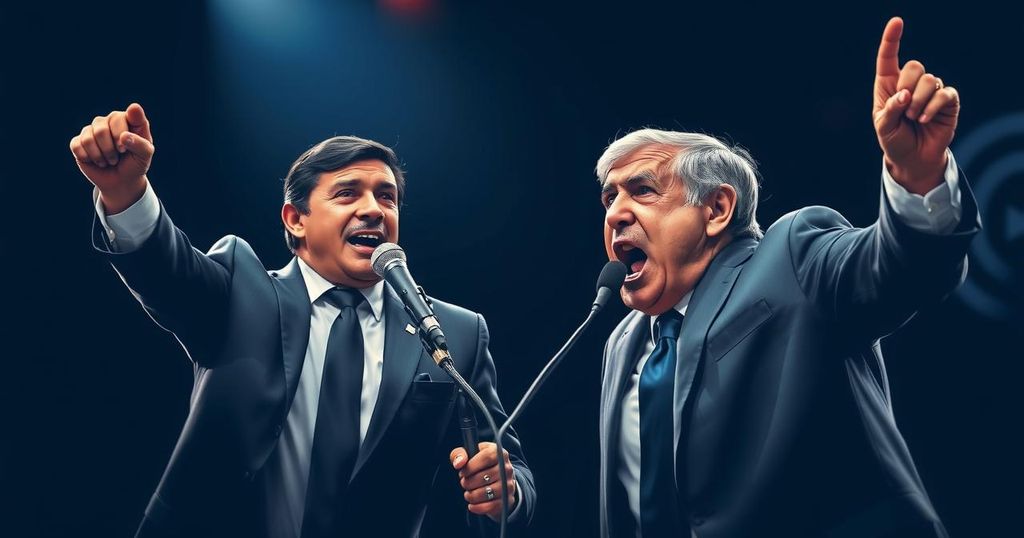Uruguay’s Political Climate: A Tight Race in the Presidential Runoff

In a closely contested presidential runoff in Uruguay, Álvaro Delgado of the National Party and Yamandú Orsi of the Broad Front face off after a lackluster initial election. Both candidates address concerns over rising crime and social welfare, reflecting a political landscape marked by moderate competition and a stable democratic framework.
Uruguay recently held a second round of presidential elections, reflecting a competitive atmosphere as candidates Álvaro Delgado from the National Party and Yamandú Orsi from the Broad Front vie for leadership. With the results of the previous election indicating a significant challenge, Delgado garnered 27% while Orsi received 44%. The current political climate in Uruguay has seen both candidates addressing crime concerns and social spending, in a context marked by relative stability compared to the anti-establishment fervor observed elsewhere.
Álvaro Delgado, aged 55, aligned with the outgoing President Luis Lacalle Pou, seeks to continue the latter’s economic policies. In contrast, 57-year-old Yamandú Orsi, hailing from a working-class background, aspires to reinvigorate the left while maintaining a moderate course. Each candidate presents distinct solutions to prevalent issues, with crime rates at the forefront of their campaigns, yet broad consensus on key matters has left many voters undecided even at this late stage.
Uruguay’s political landscape has evolved from a rather uneventful contest to a highly contentious runoff. The country, known for its progressive social policies under the past leftist government, now faces a close electoral challenge amid rising crime rates. Both candidates acknowledge the need to foster a complex relationship with Congress, which remains divided, further complicating governance after the elections.
The recent presidential elections in Uruguay have highlighted the competitive nature of its democracy, as the governing conservative party faces a formidable challenge from the left-leaning Broad Front coalition. The previous government implemented significant social reforms, including legalizations related to abortion and same-sex marriage. This election, however, sees candidates grappling with public concerns surrounding crime and economic stability amidst a climate of relative political calm, unlike other nations experiencing anti-establishment movements.
In summary, the presidential runoff in Uruguay encapsulates a blend of continuity and change, with candidates emphasizing stability against a backdrop of public anxiety over crime. As the competition narrows, both Delgado and Orsi present their platforms, aiming to capture a divided electorate. The political discourse remains centered on governance, economic policies, and maintaining Uruguay’s democratic integrity despite uncertainty accompanying the voting results.
Original Source: www.voanews.com







